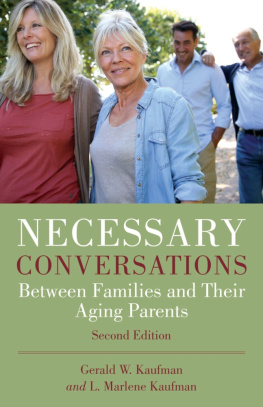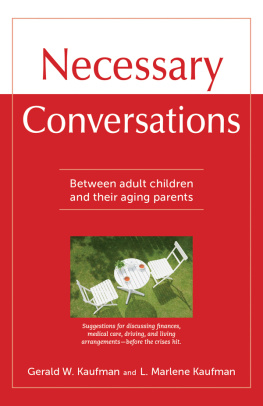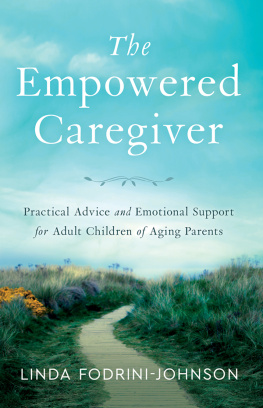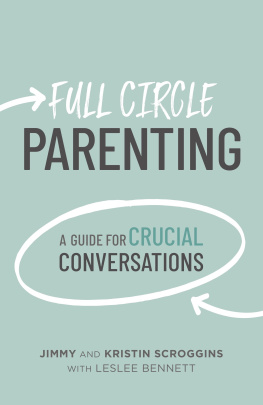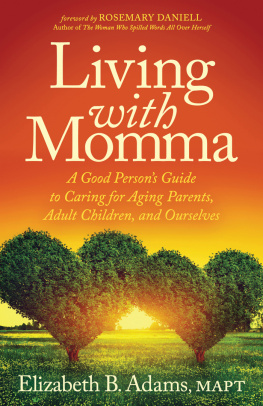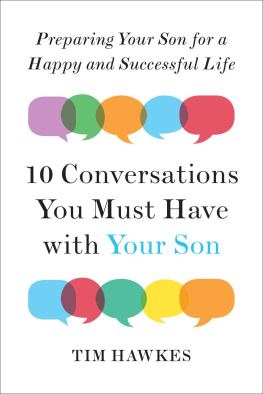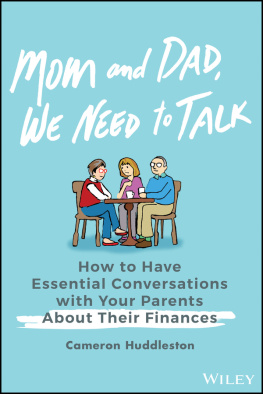NECESSARY CONVERSATIONS
Copyright 2017 by Good Books, Inc.
All rights reserved. No part of this book may be reproduced in any manner without the express written consent of the publisher, except in the case of brief excerpts in critical reviews or articles. All inquiries should be addressed to Good Books, 307 West 36th Street, 11th Floor, New York, NY 10018.
Good Books books may be purchased in bulk at special discounts for sales promotion, corporate gifts, fund-raising, or educational purposes. Special editions can also be created to specifications. For details, contact the Special Sales Department, Good Books, 307 West 36th Street, 11th Floor, New York, NY 10018 or .
Good Books is an imprint of Skyhorse Publishing, Inc., a Delaware corporation.
Visit our website at www.goodbooks.com.
10 9 8 7 6 5 4 3 2 1
Library of Congress Cataloging-in-Publication Data available on file.
ISBN: 978-1-68099-181-9
eBook ISBN: 978-1-68099-184-0
Cover design by Jane Sheppard
Cover image by iStockphotos
Printed in the United States of America
Table of Contents
Preface
In this second edition of Necessary Conversations , we strive to preserve the most essential ideas of our previous book while adding new insights gained since the original book was released. Daily, or so it seems, we meet people with new stories, challenges, and successes. We continue to learn of progress being made in the understanding of aging and of interventions that can be helpful. The subject is very fluid.
It is still our passion that seniors need to form a team with younger family members and/or friends around the time of their retirement to plan for and to manage the changes that are coming. If that window has been missed, it is important to get started promptly. The team will consult with the seniors physician, lawyer, financial advisor, and perhaps clergy. The wellbeing of the senior is a mission that they all share.
Since the release of the first edition of Necessary Conversations , we have been asked to speak at many places across the country and in Canada. Aging has become an important theme perhaps because so many persons are living longer. This longevity has important implications, including those that are financial, medical, housing, familial, and societal in nature. We cannot afford to ignore any of them. Unfortunately, many of us avoid facing these subjects and only involve family members or friends when we are in a crisis. Then, the choices may not be the best ones and can be financially, emotionally, medically, and relationally painful.
One of the most challenging and perplexing choices pertains to end-of-life care. With the support of families or friends, increasing numbers of seniors, while still competent, are deciding to avoid medical intervention when their death or profound mental impairment are certain and irreversible. More people are beginning to understand the consequences of artificially postponing death.
What, then, have we learned about aging from new sources as well as from the groups and individuals we have met with over the last several years?
1. It is now common for seniors to have no adult children, or if they have some, the children live too far away to be meaningfully involved in their care. Because of this, we have expanded the language of caregiving beyond adult children to include other relatives and even non-family helpers.
2. Families that have long-term conflict find it difficult to work together as a team. The conflict may be between the parents, between parents and adult children, among the adult children, or even among niece and nephew caregivers.
3. Some seniors find it difficult to surrender control while others dont want to be a burden on anyone.
4. Many adult children or substitutes dont feel comfortable moving into a collegial role with a senior. Some find it hard to think about their loved one declining, and others simply dont have enough time or interest to assume this responsibility.
5. Many seniors and their caregivers are having productive conversations. There is a developing awareness in the public mind that changes are needed in the ways we address aging. This is enabling more people to enter the conversation. Some are using resources like our book to help them get started.
In light of these realities, we felt an update was important. On the one hand, we want to give voice to the many people who are already making good decisions about aging. We could fill a book with their stories. On the other hand, we want to acknowledge the seniors who, for one reason or another, find it difficult to get the conversations started. In this edition, we attempt to address these concerns. The process of aging is a conversation that must continue between seniors and the people who support them and within the broader community. None of us should get old alone!
In the midst of writing this edition of Necessary Conversations , two of our closest friends developed life threatening diseases (cancer and vascular dementia). As their illnesses advanced, neither chose life-extending treatment. They, with the support of their families, made decisions that allowed them to spend their remaining time celebrating each day as a special gift. Adult children, grandchildren, and friends came to their bedside, laughed, cried, and affirmed each other for the years they had together. Death came gently and as a natural extension of life. In the midst of their pain and grief, these families demonstrated a model for living and dying that enlightens all of us. They did not die alone.
We give special words of thanks to the many people who read our original book or participated in our seminars and are committed to dealing with aging in a positive way. The stories you have told us, the questions you have raised, and the constructive ways you have challenged us have been very helpful. We are learning together. We are especially grateful to persons who have allowed us to use/reuse their personal stories. They are inspiring and informing.
Since our previous book was released, we became aware of Dr. Glenn Millers book, Living Thoughtfully, Dying Well . He tells his personal story of facing his own mortality and finding meaning in his life. We are committed to a common mission.
Also, we are grateful to Dr. Ken Brubaker, a geriatric physician who emphasizes palliative care in his teaching and in his practice. He reviewed our chapter on health and offered some important new resources and perspectives. We especially absorbed his passion about the need to challenge the medicalization of aging that many seniors are confronted with.
In addition, our knowledge base has been expanded with the help of Dr. Thomas Miller, palliative care and hospice director. He also reviewed our chapter on health and, together with his wife Jill, a hospice nurse, has given us a more complete understanding of death and dying. They also put us in touch with some useful resources that we were able to use in this edition of the book.
Finally, a big shout-out to our editor, Chamois Holschuh, who took on our project with energy, conviction, and with a joyful spirit. Her suggestions have been most helpful. Thanks to Good Books and Skyhorse Publishing for agreeing to share our ideas.
Gerald W. Kaufman and L. Marlene Kaufman
CHAPTER 1
Beginning the Conversations
MOM: You know, last night when we went out to dinner and they asked if we wanted the senior discount, I just about said no. Really, were you ready for that? Seniors! Were not old yet. Why do they have to rush the calendar? I want to stay young as long as I can.

